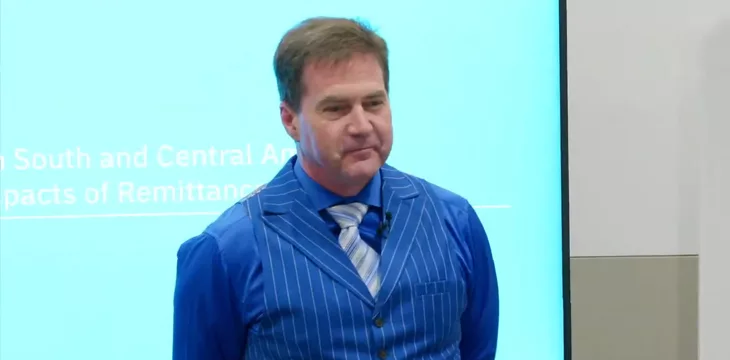|
Getting your Trinity Audio player ready...
|
What effect does the large-scale movement of people worldwide have on economics? “Economic Geography” is the name given to the study of this phenomenon, says Dr. Craig S. Wright in the fourth session of The Bitcoin Masterclasses, season 6. There are impacts on both migrant and local populations as governments try to understand what needs to exist and decide policies in response.
“Governments like information,” he says. Few would dispute this statement, and Dr. Wright admits that many see governments as wanting to “get too involved.” So once again, we’re looking for ways to provide as much useful and verifiable information as required without permitting overreach.
He reminds the audience that the authorities do attempt to solve real problems. The exploitation of foreign workers is one, and he gives the example of women hired as domestic workers who end up in the sex industry once they’re in a new country and powerless to do anything about it. Over the years, there have been multiple accusations (across the spectrum in many industries) of passports withheld, wages un- or under-paid, or employment conditions misrepresented. Some governments prefer to ignore these problems if it benefits their country. In contrast, others like to know about them if it’s affecting their citizens and causing problems in their local society.
Governments also like to know if all the right taxes are being paid, whether or not workers have the correct visas, and what resources they’re using.
Geography matters when it comes to moving money, too. There are all kinds of barriers and middlemen between sender and receiver, limiting liquidity and (if you’ve been paying attention so far) reducing opportunities to build real wealth.
Why reputation is important…and difficult
At this point, we delve into tribes, close and semi-close social relationships, and Dunbar’s Number (which, for the record, is ~150), small villages, large cities…and reputation. Throughout history, reputation “tribes” (also known as guilds) emerged to guarantee the reputations/quality of bakers, stonemasons, and precious metals. Governments also stepped in to serve in this role with standards and licensing requirements.
The dynamics of these reputation systems change as people move across borders. A respected professional organization in one country may be unknown in another. The same goes for government-issued licenses. Online commerce companies like Amazon (NASDAQ: AMZN) and eBay (NASDAQ: EBAY) have attempted to solve the cross-border reputation problem with their own internal systems, but realistically these have many flaws.
Libertarian-leaning people say this is all a sign that governments are becoming redundant. Dr. Wright responds by saying these people don’t understand the vital role of institutions. The last two sentences alone are probably enough to start arguments, but we won’t discuss it here.
As a result, sending money and shipping goods between countries is currently expensive. Authorizing a payment, attesting an event has happened, witnessing a document, or affirming the quality of goods/services, is still difficult. Even if it’s not expensive, it has costs in time spent.
We still use physical documents and signatures to do much of this, which is trusted simply due to tradition but almost laughably untrustworthy in reality.
Although many different issues are discussed in The Bitcoin Masterclasses series, they all lead towards one base solution: the need for a secure, trusted, global “ledger of truth” with information that can be accessed instantly when needed—but only by the right people. Needless to say, this ledger must be digital.
You may have figured out by now that this ledger is the blockchain. But it can’t be just any blockchain. It must be open for anyone to use, it must scale to handle everyone’s data, and it must be cheap and fast. Only the BSV blockchain has all these attributes, and it’s been chugging along since January 2009. Various applications and interfaces still need to be created to ensure smooth interaction between the blockchain and the physical world. Still, first, everyone must understand how much this global trusted ledger is necessary.
The fourth session of Season 6 begins here. You can watch this latest The Bitcoin Masterclasses season in full and all past seasons on the CoinGeek YouTube channel.
The Bitcoin Masterclasses: Logistics, supply chain management & stock control

 07-11-2025
07-11-2025 





